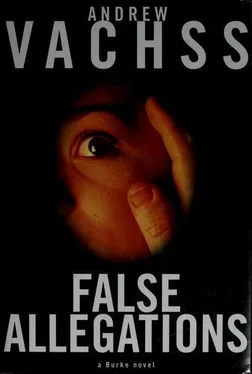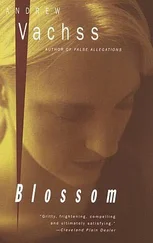He pleaded guilty on the eve of trial. The prosecutor agreed he was suffering from a "mental disease or defect" and prison wouldn't be appropriate. He was committed to a closed psychiatric facility for an indefinite period, his status to be reviewed periodically.
Three months into his term, he was stabbed to death in the shower room.
His mother's sister remarried a year later. Kite never returned to Spokane. I glanced over the law school stuff—just a flesh–out of what Wolfe had already told me. Law Review, Order of the Coif, American Jurisprudence Award in Contracts. Admitted to the New York Bar in 1975, Federal District Court in 1976.
Never married. No indication he was gay. The Sutton Place address was the only one anybody had. No driver's license. Premises permit for a SIG–Sauer P230 semi–auto.
He had a SEP account at a major brokerage house. Started in 1988, rolling over the 401(k) from the last law firm he'd left. Present value: $588,644.22. The Sutton Place joint was a co–op. Mortgage of $860,000, this after a down payment of $750,000 flat. Monthly nut, mortgage, carrying charges, and taxes: $13,100.29. Paid perfectly, auto–EFT from his business checking account. The unit he owned included a basement garage. A 1996 Cadillac STS sedan was registered to him at that address. A white one.
Kite was listed as the sole stockholder of Screentest Supreme Software, a closely held corporation based at the Sutton Place address. Its only asset was a series of copyrights and trademarks. His 1994 IRS 1040 showed a net income of $801,444. Nothing looked cute about the tax return on the surface: no exotic deductions, no tax shelters. No employees either—he paid everything on a contract basis, from word processing to an occasional chauffeur. Heather received checks totaling almost forty thousand in 1994, all marked "research."
Bank accounts, T–bills, a smattering of stocks, mostly technology issues. His real estate portfolio was heavy: five co–op apartments in the city, from a three–bedroom high–floor to a couple of studios. A management company was handling them, and it looked like it was doing a good job—they were all fully rented. They all had mortgages too; he was carrying most of them flat, showing a slight profit on the biggest unit, making his profit off the mortgage deductions and depreciation.
American Express, VISA, MasterCard…all paid–to–date, no balances. Except for the mortgages, he didn't owe anyone a dime.
Wolfe's papers estimated his net worth at $4.3 million, "conservative."
The package also contained photocopies of various briefs and motions he'd submitted when he'd worked as a lawyer, a couple of contracts he'd drawn, even a transcript of oral argument on an appeal. The briefs were more science than law: charts and graphs, citations to articles in psychiatry journals, complicated logic chains painstakingly and elegantly drawn.
One of them was a custody case, Kite representing the father. The mother said she had discovered the man was sexually abusing his son. She wanted him barred from visitation. Kite argued that she'd made the whole thing up, proved that she'd been abused herself as a child, said she was "spooking at shadows" and that she was a "secondary victim of an incompetent therapist." His deposition of the therapist was a masterpiece. He questioned her about the protocols she used, showed she had no special training in the use of anatomically correct dolls, pointed out a few minor exaggerations on her résumé, asked why she never videotaped her sessions with the child. And his own brief was full of citations to studies by psychologists pointing out the damage to any child forced to carry the burden of a false allegation.
He won that case. The court said the mother's conduct was so egregious that it warranted an outright change of custody: the mother was allowed to see the boy only under supervision. The decision was upheld on appeal.
A year later, the mother was arrested for trying to kidnap the kid. She was all set to flee—had fake ID for them both. They bagged her at the airport, tickets to France in her handbag.
Kite had an AV rating, the highest, from Martindale–Hubbell. He was listed in Who's Who in American Law . Except for a half–dozen brief mentions in the New York Law Journal over the years, the newspaper search had come up empty—he wasn't a publicity hound.
No. He was a hover–hunter; a bird of prey who didn't need a perch to work from.
The last document was a double–spaced list of all the lawyers Kite had consulted to since he went into solo private practice. It ran four pages, went coast to coast. I recognized a couple of the names—media–slut matrimonial bombers—but most I never heard of. Wolfe had annotated the list, breaking the names down by specialty and type of case. Mostly custody and visitation, but a good many civil lawsuits and a few criminal cases.
In the matrimonials, Kite worked for whoever hired him. In all the others, he was always for the defendant.
I read it all through, then I read it again, looking for a pattern. The only one I could think of didn't pan out: although most of his clients—or, actually, the clients of the lawyers who hired him—were male, almost a third were female. He wasn't one of those "father's rights" guys.
Wolfe was good, and her microscope went deep. But I didn't see any cracks in the wall.
Itook a break. Piled Pansy into the Plymouth and drove down to one of the abandoned piers on the West Side and let her run around a bit.
When I got back, I made us both some lunch. Then I opened the file folder I'd taken from Kite.
Articles by psychologists. Briefs by lawyers. Stories by journalists. Every one about false allegations of child sexual abuse. None of them written by Kite. But then I noticed the highlighting—neon–bright see–through colors splattering almost every page, sometimes several colors on the same one. At the end of the packet, I found a neat chart marked KEY. Each color was represented by a bold slash from the highlighter. Next to each slash, some tiny, crabbed, handwriting in jet–black ink, so hyper–precise that at first I thought it was a computer font.
[Red] An "unfounded" allegation of child abuse does not mean the allegation was "false." The "unfounded" designation also applies to cases in which the investigation could not be completed because the suspects left the jurisdiction, etc. And many "founded" cases are never made the subject of a Child Protective Petition.
[Blue] The "statistics" cited are not "statistics" at all. They are extrapolations based on estimates. No scientific validity.
[Yellow] (1) Expert witness for the defense was quoted in an interview in which he defended "pedophilia" as an "alternate lifestyle." (2) Individual testifying here not recognized as "expert" by courts in three separate jurisdictions. (3) The term "validation" is a misnomer: "valid" means "true this time," while "reliable" means "true over time." (4) "Expert" cannot testify as to whether child is telling the truth—this invades the province of the jury.
[Orange] Unsound research (sample too small, insufficient controls, et al.).
[Green] Financial interest in outcome. Hidden agenda. Undisclosed connection to foundation named as principal in lawsuit. Settlement forced on defendant by insurance company.
[Purple] Does not meet DSM–IV criteria for "syndrome." No data collected. Never submitted to refereed journal. Not scientific—merely the carefully packaged pronouncements of a merchant.
[Tan] Case reversed on technical application of the Confrontation Clause. Media reports as "vindication" inaccurate.
[Magenta] Statute of Limitations alert!
[Cyan] (1) "Protective Parent" label entirely self–awarded, meaningless. (2) Diagnosis of Post–Traumatic Stress Disorder is not axiomatic indicator of child sexual abuse. Pressure to carry a false allegation could induce could stress in a child.
Читать дальше











